Syndecan-3 is selectively pro-inflammatory in the joint and contributes to antigen-induced arthritis in mice, Arthritis Research & Therapy
Por um escritor misterioso
Last updated 15 abril 2025
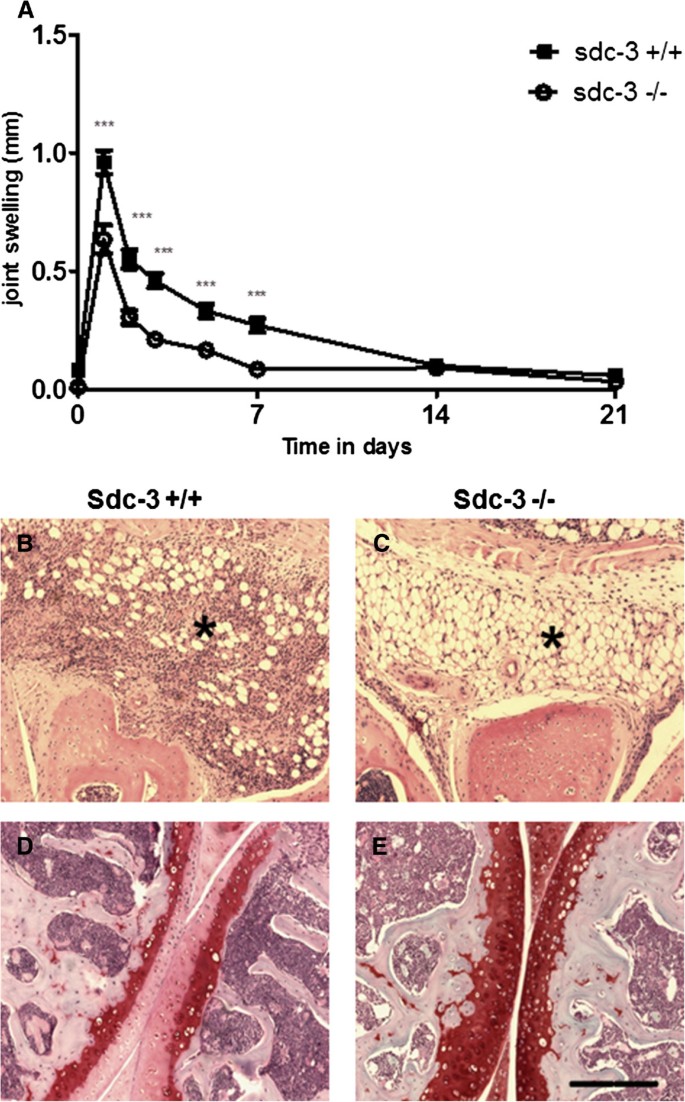
Introduction Syndecans are heparan sulphate proteoglycans expressed by endothelial cells. Syndecan-3 is expressed by synovial endothelial cells of rheumatoid arthritis (RA) patients where it binds chemokines, suggesting a role in leukocyte trafficking. The objective of the current study was to examine the function of syndecan-3 in joint inflammation by genetic deletion in mice and compare with other tissues. Methods Chemokine C-X-C ligand 1 (CXCL1) was injected in the joints of syndecan-3−/−and wild-type mice and antigen-induced arthritis performed. For comparison chemokine was administered in the skin and cremaster muscle. Intravital microscopy was performed in the cremaster muscle. Results Administration of CXCL1 in knee joints of syndecan-3−/−mice resulted in reduced neutrophil accumulation compared to wild type. This was associated with diminished presence of CXCL1 at the luminal surface of synovial endothelial cells where this chemokine clustered and bound to heparan sulphate. Furthermore, in the arthritis model syndecan-3 deletion led to reduced joint swelling, leukocyte accumulation, cartilage degradation and overall disease severity. Conversely, CXCL1 administration in the skin of syndecan-3 null mice provoked increased neutrophil recruitment and was associated with elevated luminal expression of E-selectin by dermal endothelial cells. Similarly in the cremaster, intravital microscopy showed increased numbers of leukocytes adhering and rolling in venules in syndecan-3−/−mice in response to CXCL1 or tumour necrosis factor alpha. Conclusions This study shows a novel role for syndecan-3 in inflammation. In the joint it is selectively pro-inflammatory, functioning in endothelial chemokine presentation and leukocyte recruitment and cartilage damage in an RA model. Conversely, in skin and cremaster it is anti-inflammatory.

Arthritis Research & Therapy 1/2019
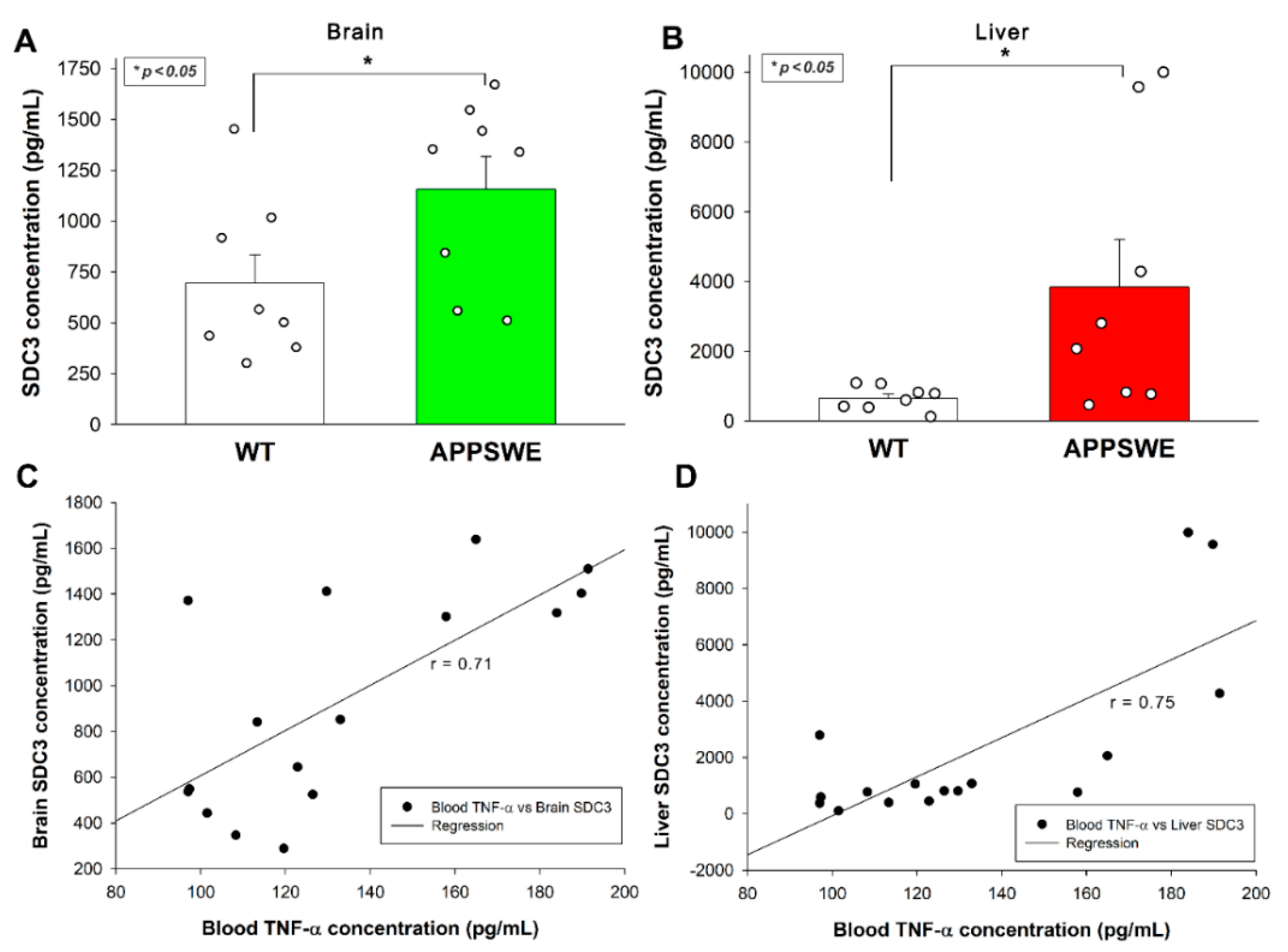
IJMS, Free Full-Text
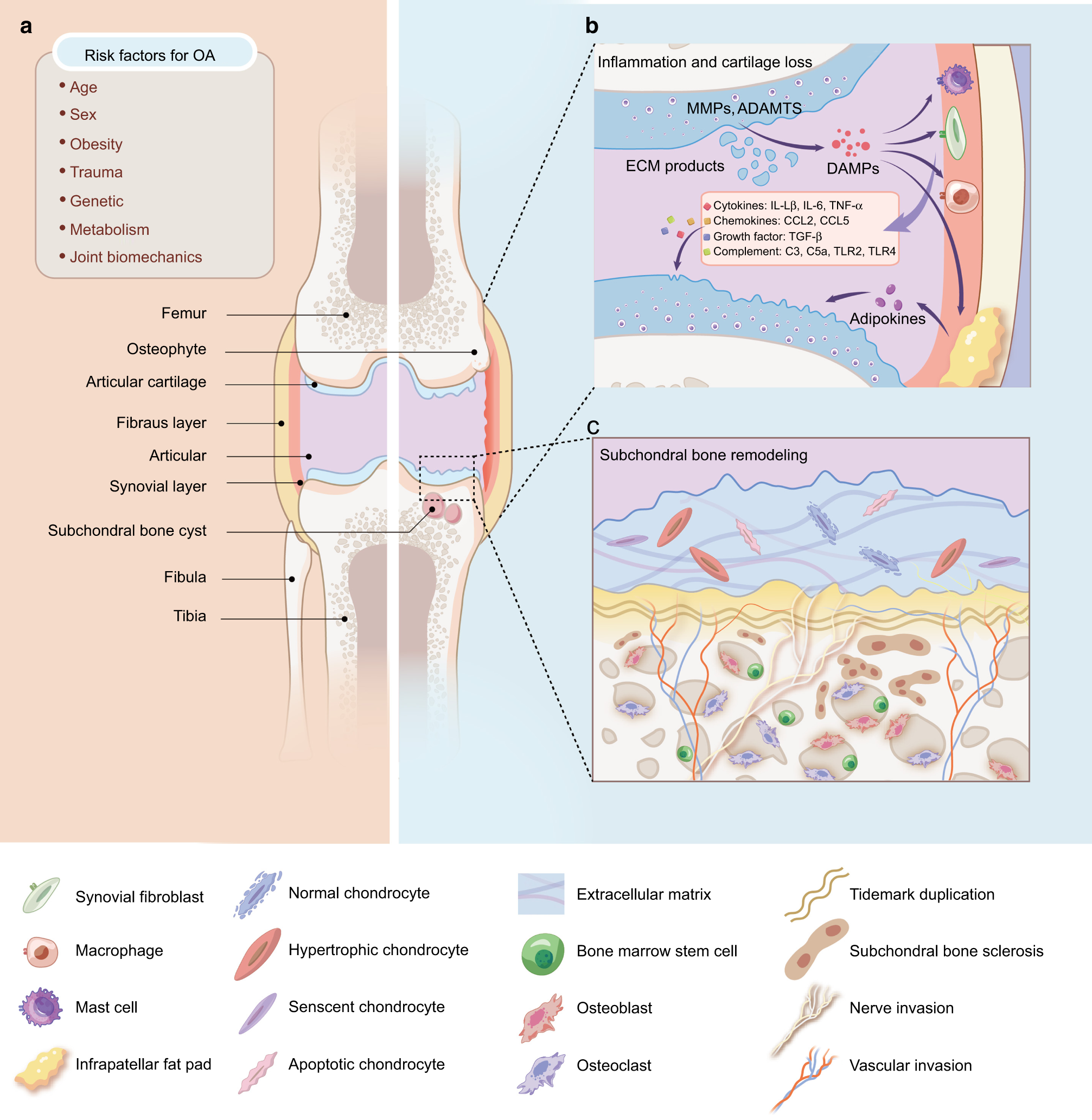
Exosomes rewire the cartilage microenvironment in osteoarthritis: from intercellular communication to therapeutic strategies

Effect of Polarization and Chronic Inflammation on Macrophage Expression of Heparan Sulfate Proteoglycans and Biosynthesis Enzymes - Maarten Swart, Linda Troeberg, 2019
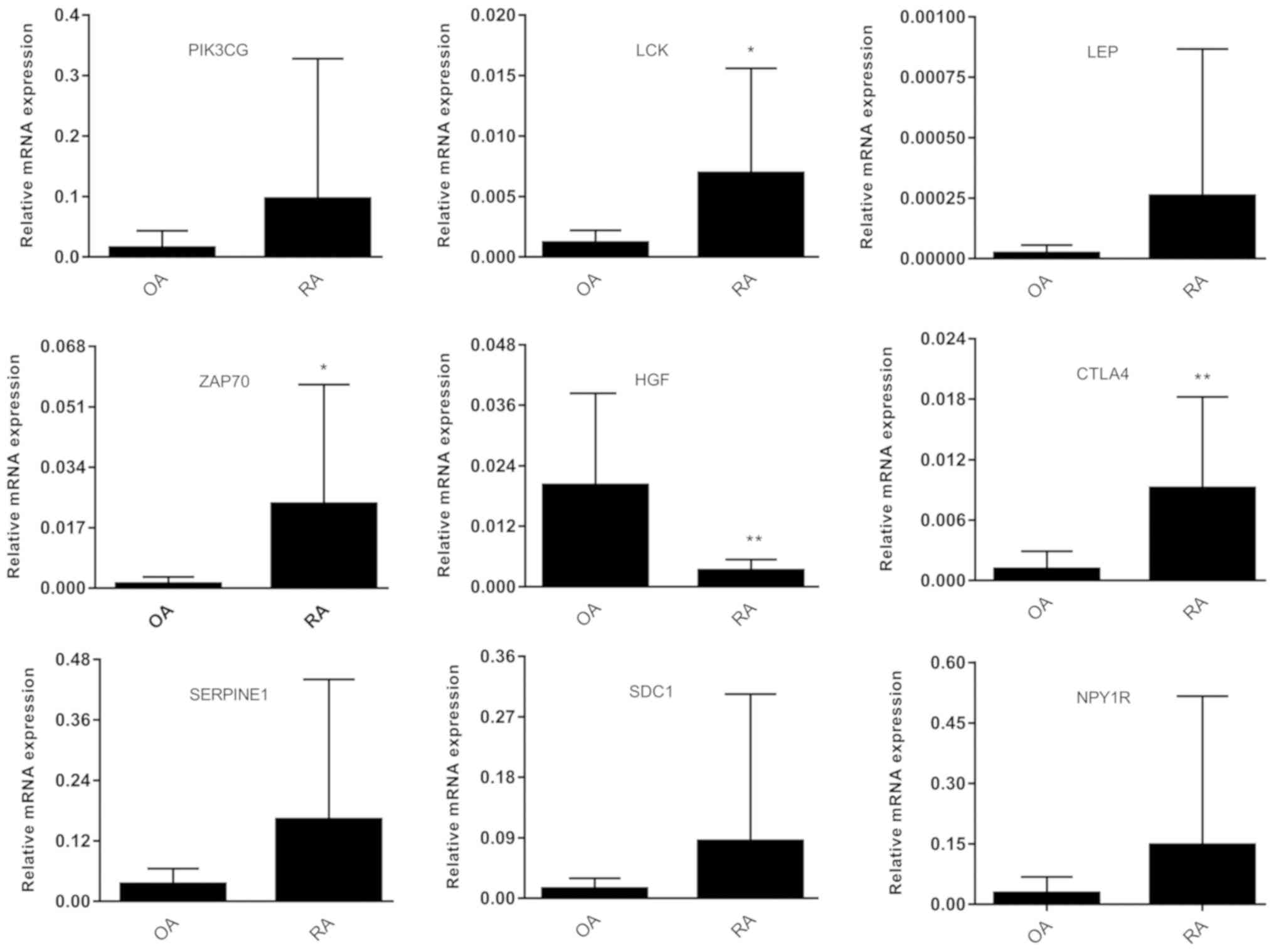
Identification of pivotal genes and pathways in the synovial tissue of patients with rheumatoid arthritis and osteoarthritis through integrated bioinformatic analysis

Inflammation-related pyroptosis, a novel programmed cell death pathway, and its crosstalk with immune therapy in cancer treatment

Syndecans Circulation Research
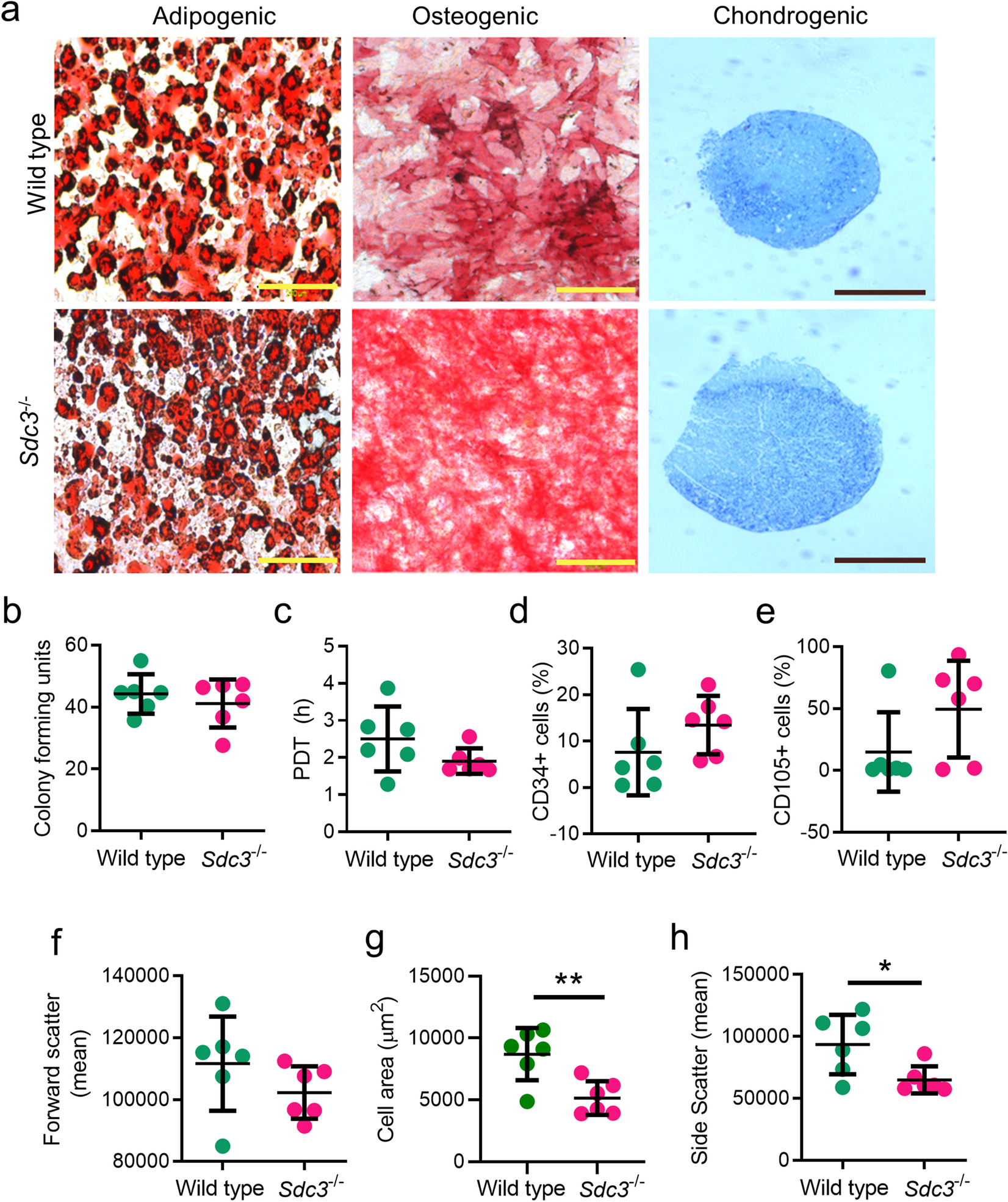
Syndecan-3 regulates MSC adhesion, ERK and AKT signalling in vitro and its deletion enhances MSC efficacy in a model of inflammatory arthritis in vivo
Anti-Arthritic Effect of Chebulanin on Collagen-Induced Arthritis in Mice

Cartilage extracellular matrix-derived matrikines in osteoarthritis

CSF-1 maintains pathogenic but not homeostatic myeloid cells in the central nervous system during autoimmune neuroinflammation
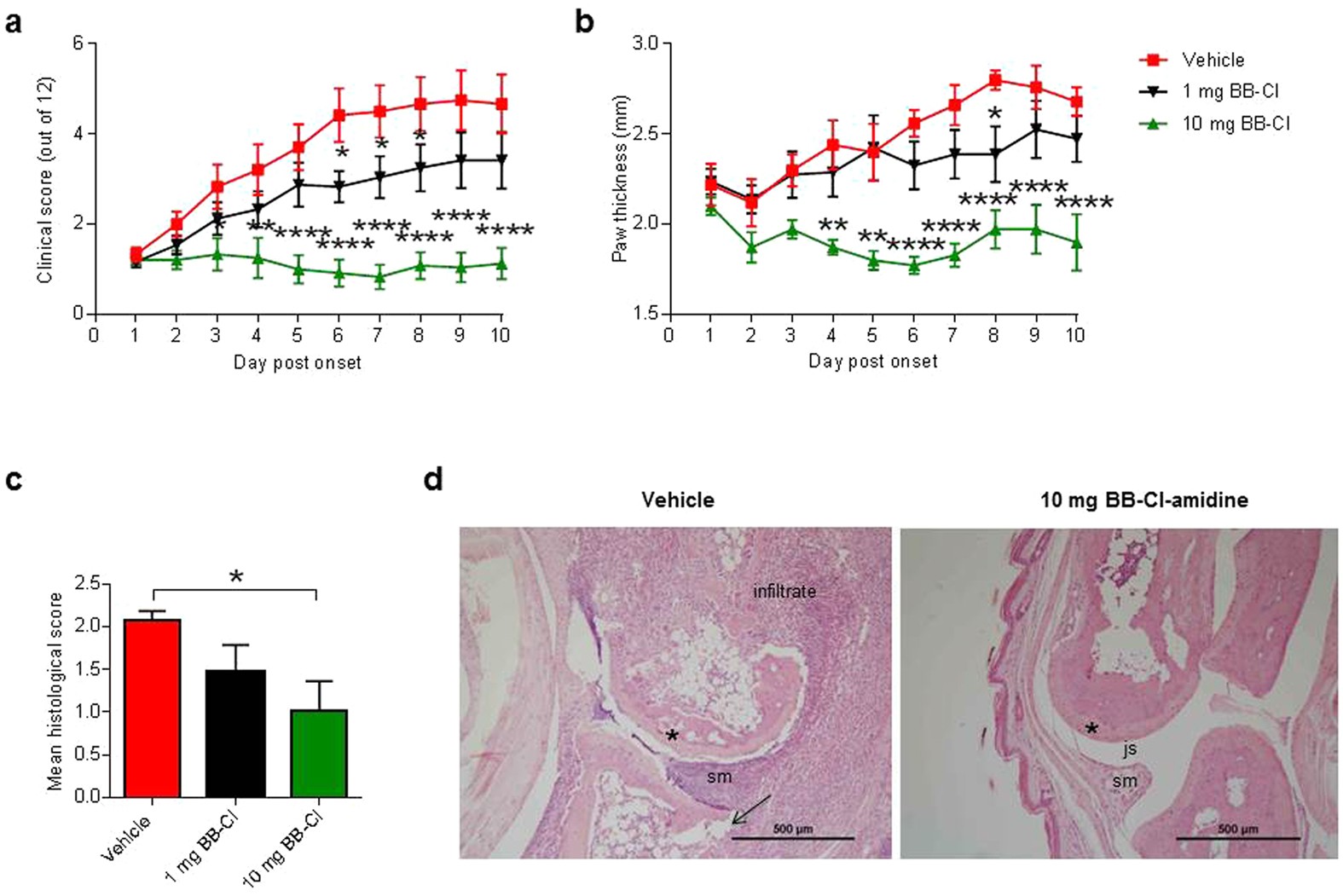
Abrogation of collagen-induced arthritis by a peptidyl arginine deiminase inhibitor is associated with modulation of T cell-mediated immune responses
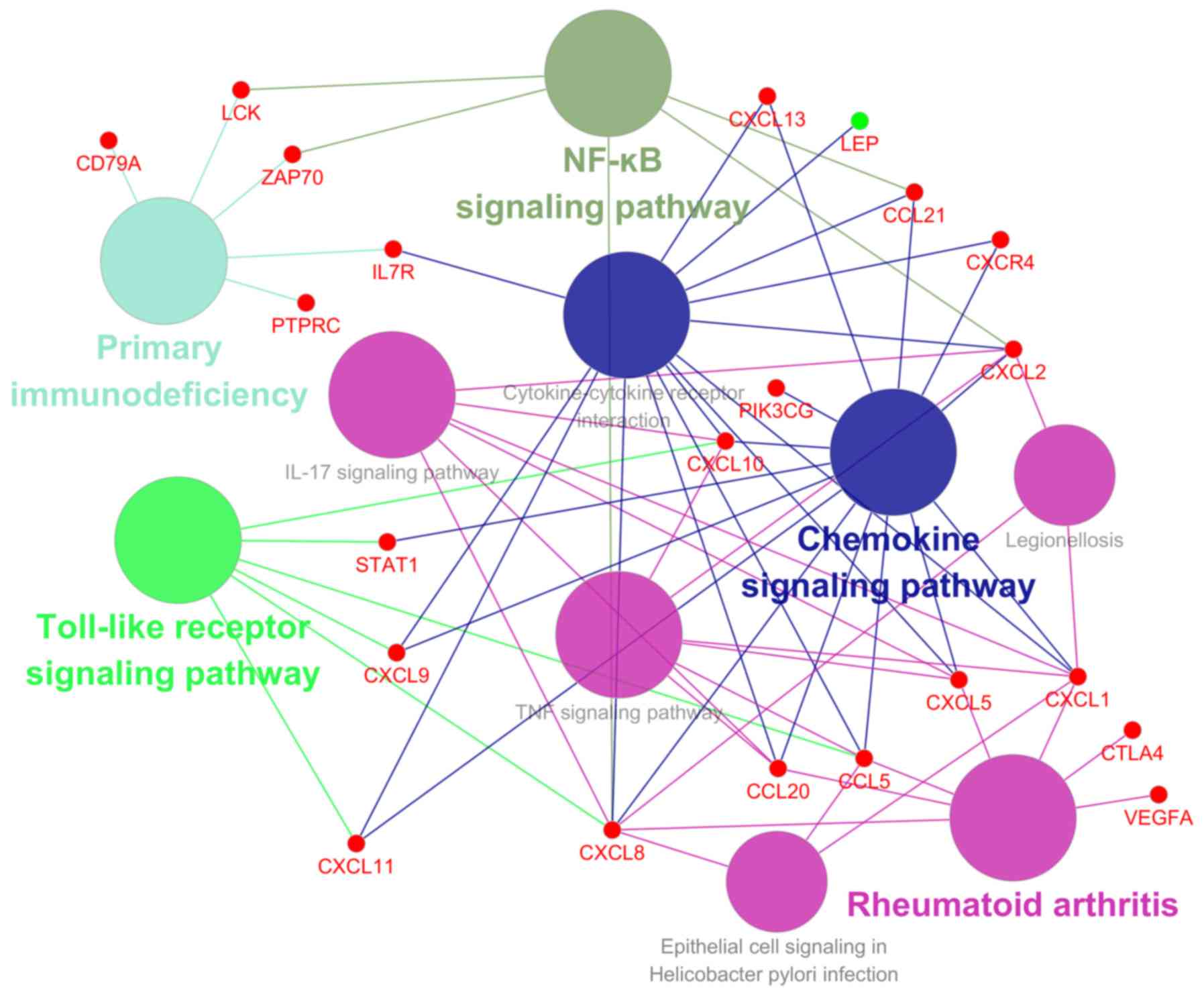
Identification of pivotal genes and pathways in the synovial tissue of patients with rheumatoid arthritis and osteoarthritis through integrated bioinformatic analysis
Recomendado para você
-
scariestmedia #brendanreviews #disturbingmovieiceberg #disturbingmovi15 abril 2025
-
 MDPOPE 1-3 : r/MondoGore15 abril 2025
MDPOPE 1-3 : r/MondoGore15 abril 2025 -
 Xanaji: albums, songs, playlists15 abril 2025
Xanaji: albums, songs, playlists15 abril 2025 -
 No AU - MDPOPE Sans by MushroomSer333 on DeviantArt15 abril 2025
No AU - MDPOPE Sans by MushroomSer333 on DeviantArt15 abril 2025 -
 MOST DISTURBED PERSON ON PLANET EARTH III (2019) di Thomas Extreme Cinemagore/Thomas Cinema15 abril 2025
MOST DISTURBED PERSON ON PLANET EARTH III (2019) di Thomas Extreme Cinemagore/Thomas Cinema15 abril 2025 -
 mdpope1|TikTok Search15 abril 2025
mdpope1|TikTok Search15 abril 2025 -
♫ MDPOPE15 abril 2025
-
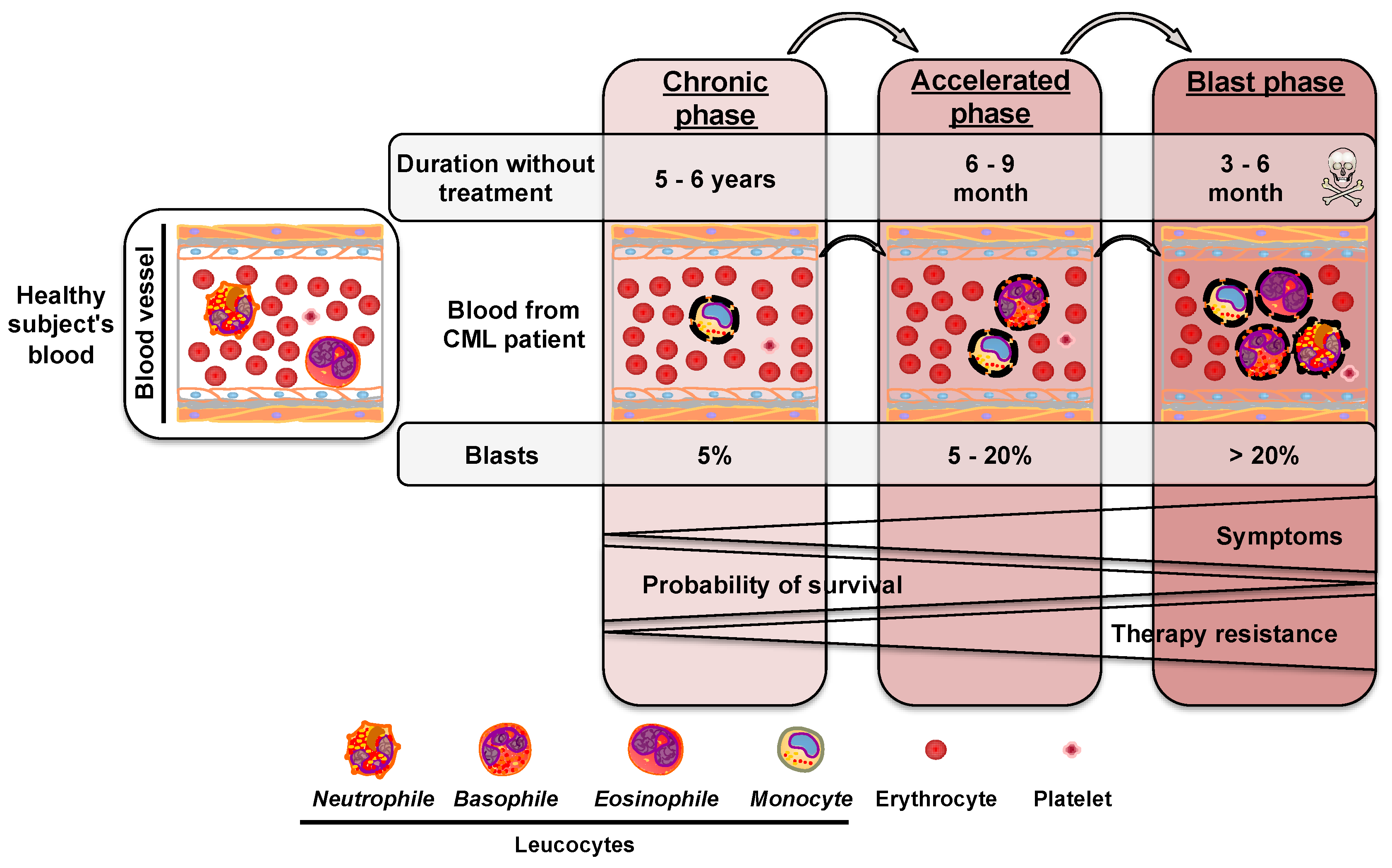 Cancers, Free Full-Text15 abril 2025
Cancers, Free Full-Text15 abril 2025 -
 Download Listing - C2itmedia15 abril 2025
Download Listing - C2itmedia15 abril 2025 -
Rapid Redox Cycling of Fe(II)/Fe(III) in Microdroplets during Iron–Citric Acid Photochemistry15 abril 2025
você pode gostar
-
 almost every major breakthrough in Healthcare and disease treatments come out of the US.'' : r/ShitAmericansSay15 abril 2025
almost every major breakthrough in Healthcare and disease treatments come out of the US.'' : r/ShitAmericansSay15 abril 2025 -
 Assistir Pokemon Sun and Moon - Episódio 26 Online - Download15 abril 2025
Assistir Pokemon Sun and Moon - Episódio 26 Online - Download15 abril 2025 -
 21 Jogos Educativos para Baixar no Celular - Aplicativos Grátis15 abril 2025
21 Jogos Educativos para Baixar no Celular - Aplicativos Grátis15 abril 2025 -
 Star Wars: The Last Jedi – Wikipédia, a enciclopédia livre15 abril 2025
Star Wars: The Last Jedi – Wikipédia, a enciclopédia livre15 abril 2025 -
 Conjunto De Natal Com Animais Kawaii Bonitos - Raposa, Coelho15 abril 2025
Conjunto De Natal Com Animais Kawaii Bonitos - Raposa, Coelho15 abril 2025 -
 Luca Paguro Art Board Prints for Sale15 abril 2025
Luca Paguro Art Board Prints for Sale15 abril 2025 -
bbno$ - piccolo Play on Anghami15 abril 2025
-
 Ckbet - seu destino único para apostas online e jogos de cassino, Diário Arapiraca15 abril 2025
Ckbet - seu destino único para apostas online e jogos de cassino, Diário Arapiraca15 abril 2025 -
 PDF) Prática das Subcompetências Orais para o Desenvolvimento da Competência Comunicativa em Situações da Vida Quotidiana: Estudo de caso na Universidade de Valência15 abril 2025
PDF) Prática das Subcompetências Orais para o Desenvolvimento da Competência Comunicativa em Situações da Vida Quotidiana: Estudo de caso na Universidade de Valência15 abril 2025 -
BLOCOS DE MONTAR PINOS MAGICOS INFANTIL 180 PÇS15 abril 2025


